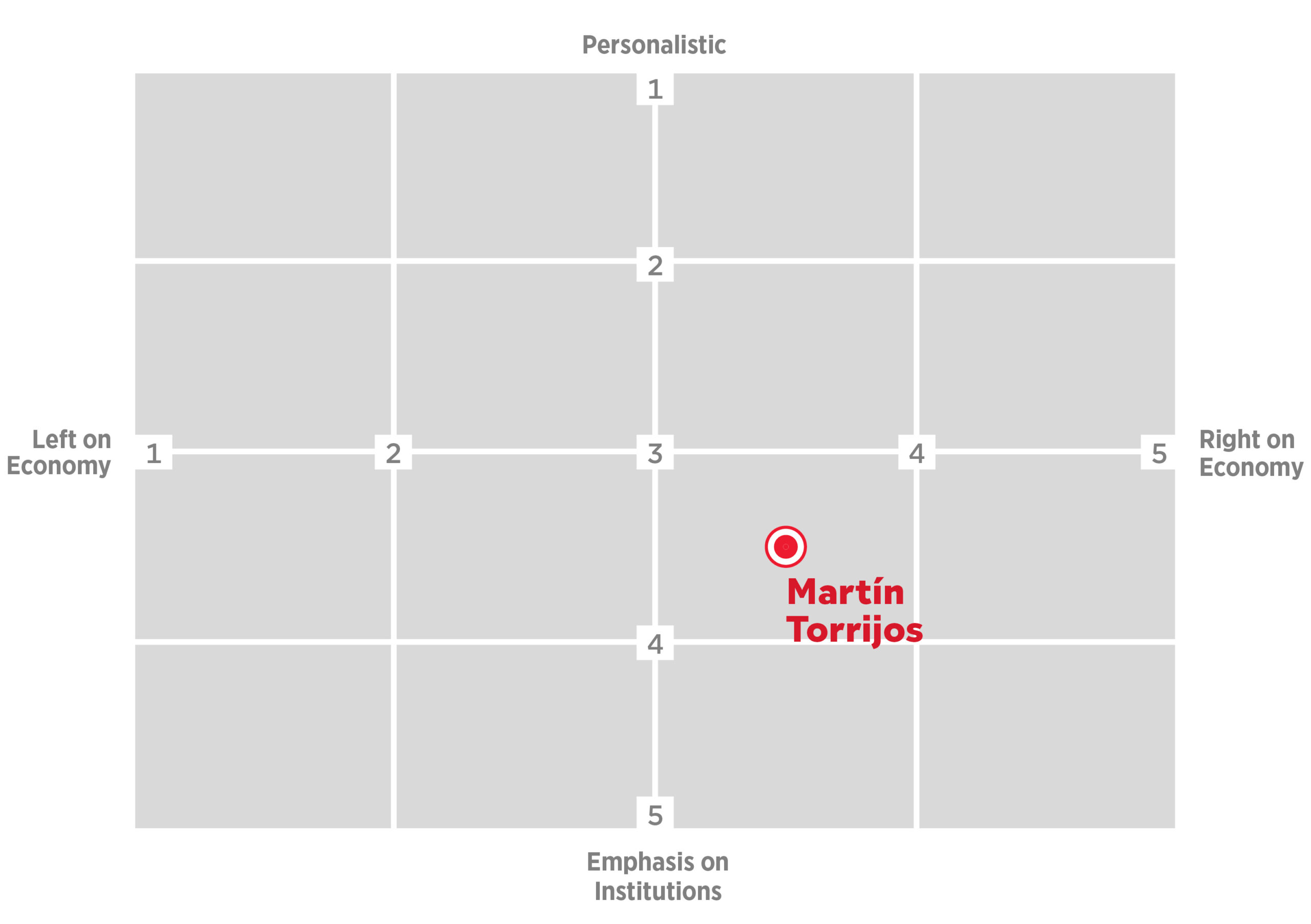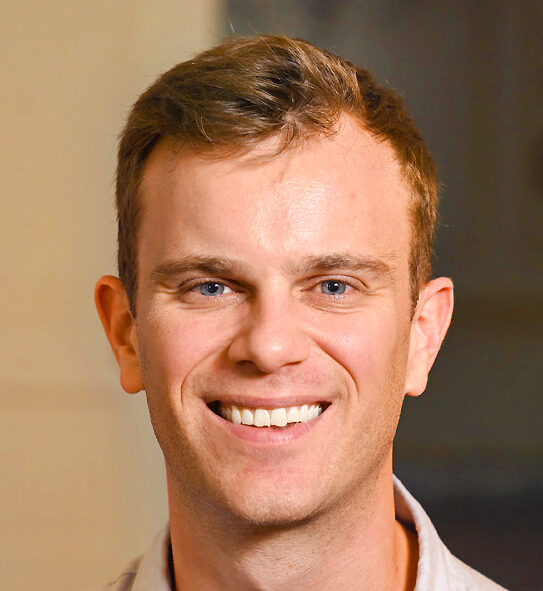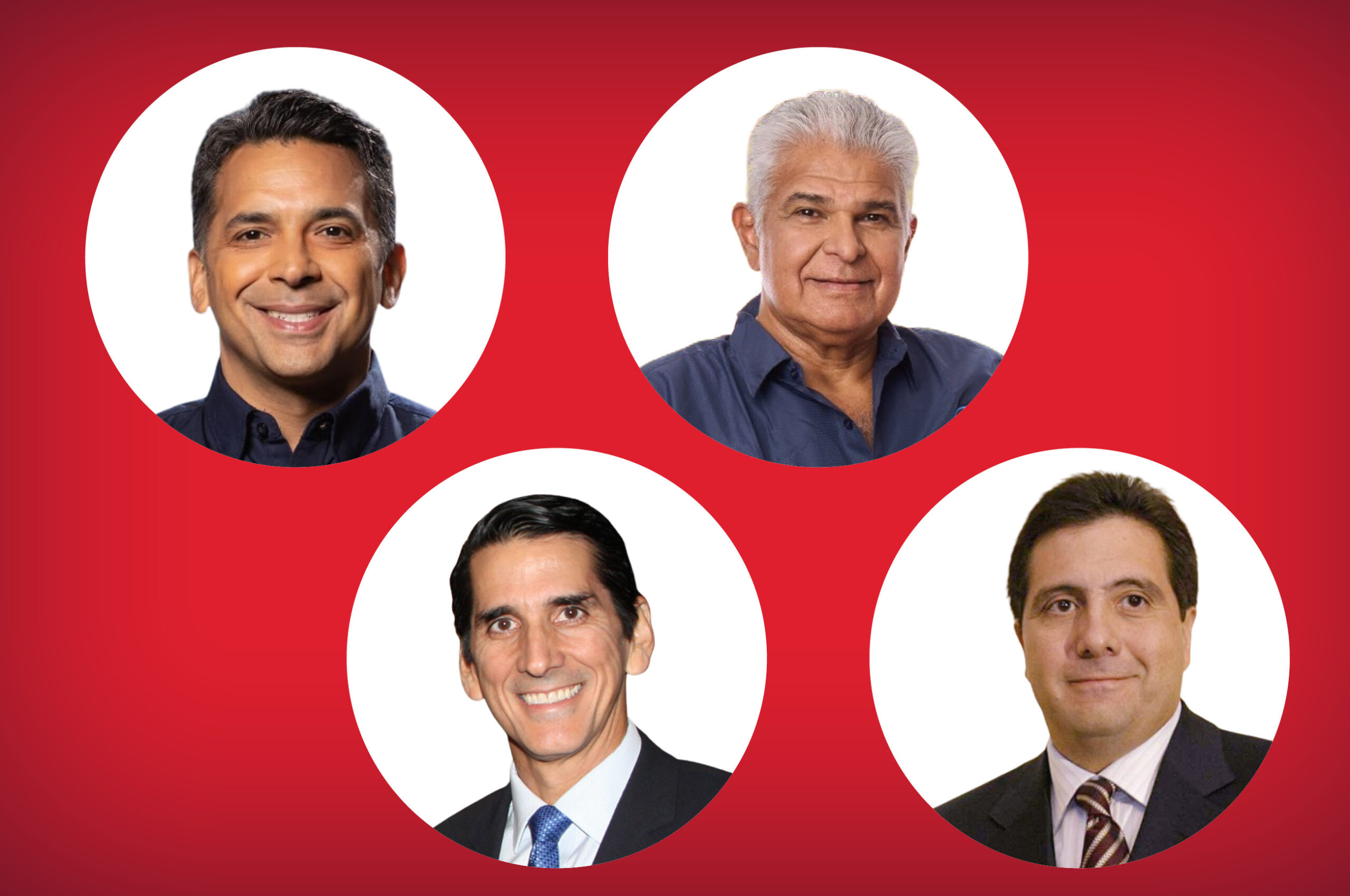This article is adapted from AQ’s special report on Latin America’s election super-cycle.
This page was last updated on April 29.
Panama’s voters will elect a president, vice president and all 71 seats in its unicameral legislature in a single-round election on May 5.
This page includes the four leading presidential candidates in April polling from CID Gallup, listed in alphabetical order by last name.
We will occasionally update this page to reflect developments in the campaigns.
AQ also asked a dozen nonpartisan experts on Panama to help us identify where each candidate stands on two spectrums: left versus right on economic matters, and a more personalistic leadership style versus an emphasis on institutions. We’ve published the averages, with a caveat: Platforms evolve, and so do candidates.
This piece is part of AQ’s ongoing coverage of upcoming elections.
Note: Former President Ricardo Martinelli was the front-runner in the race before he was disqualified by the Supreme Court and then the country’s electoral tribunal due to a conviction for money laundering.
His running mate, José Raúl Mulino, has announced that he will run in Martinelli’s place.
Ricardo Lombana | José Raúl Mulino | Rómulo Roux | Martín Torrijos
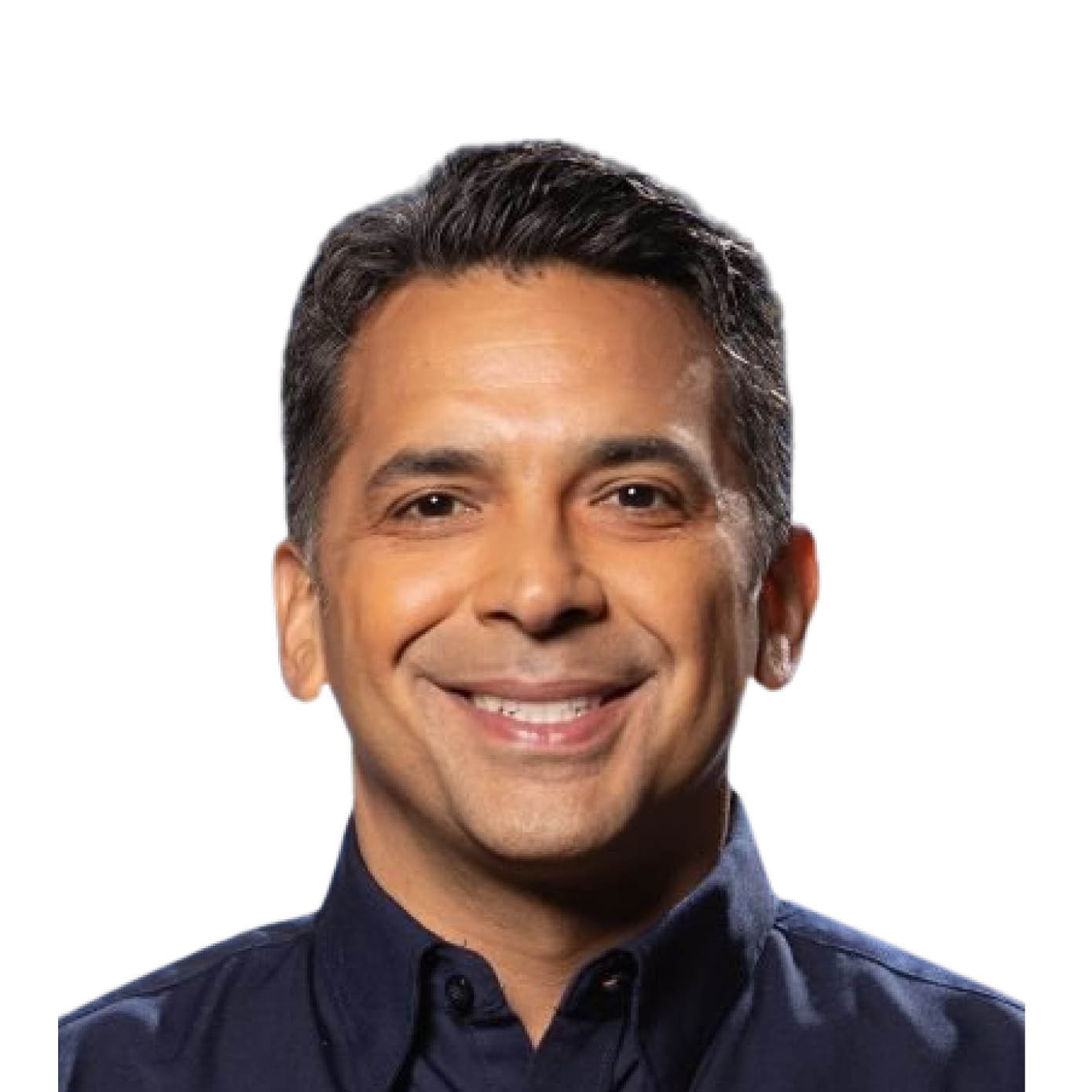
Ricardo Lombana
49, lawyer
Movimiento Otro Camino (MOCA)
“The powerful corrupt are scared, because the party’s over for them.”
HOW HE GOT HERE
Lombana is a lawyer and politician who served as a diplomat in Washington under President Martín Torrijos (2004-07). He later worked as an executive at the newspaper La Prensa before founding his law firm in 2013. In 2019, he ran for president as an independent, finishing third with 19% of the vote.
WHY HE MIGHT WIN
In the aftermath of national demonstrations in 2022 and 2023 that crystallized discontent with the traditional political class, Lombana’s independent bona fides have earned him supporters and momentum. He is viewed as a “clean” candidate in a race dominated by discussions of corruption. Panama’s election is decided in a single round, so in a split field, he could win even without the support of a major party.
WHY HE MIGHT LOSE
Lombana had spoken positively about the Cobre Panamá mine contract that sparked the 2023 demonstrations, and changed his rhetoric when the protests were underway. This may limit how much support he can channel from the protest movement. He is also inexperienced at a tumultuous time when many voters may be looking for a seasoned, steady hand.
WHO SUPPORTS HIM
Independents and a wide swath of the protest movement, especially younger voters, may be attracted to his campaign because he is not affiliated with traditional political parties. As a centrist slightly to the left of the other major candidates, he has some support among unions even as he remains broadly pro-business.
WHAT HE WOULD DO
Like the other candidates profiled here, he supports pro-business policies but also the closure of the copper mine at the center of the national protests, as well as tougher anti-corruption measures and lowering the price of medicine. He would immediately call a referendum on a range of constitutional reforms. He would strictly enforce water and environmental laws, put more police on the streets, require ships flying Panama flags to employ at least 25% Panamanians, and expand training and vocational programs.
IDEOLOGY
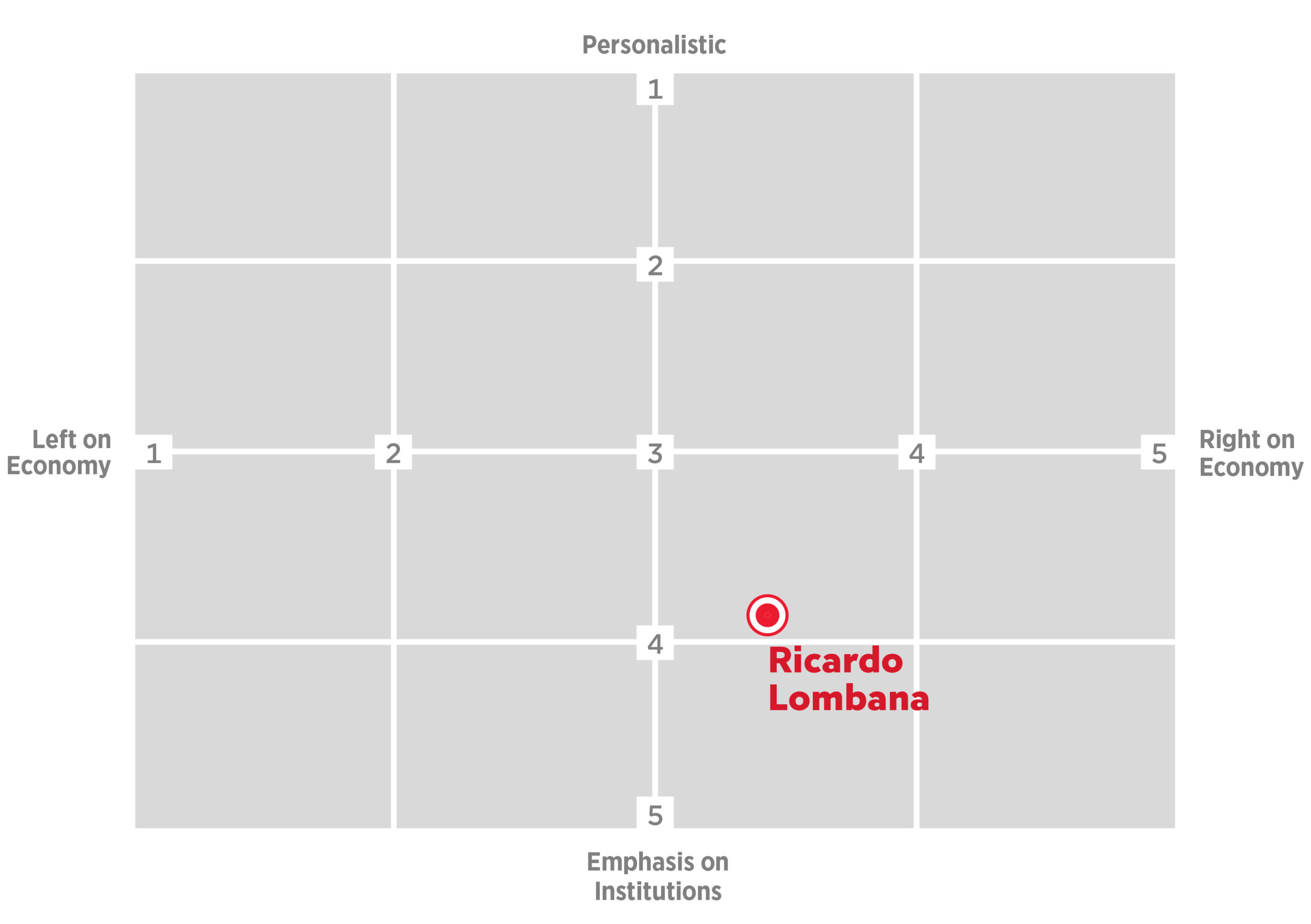
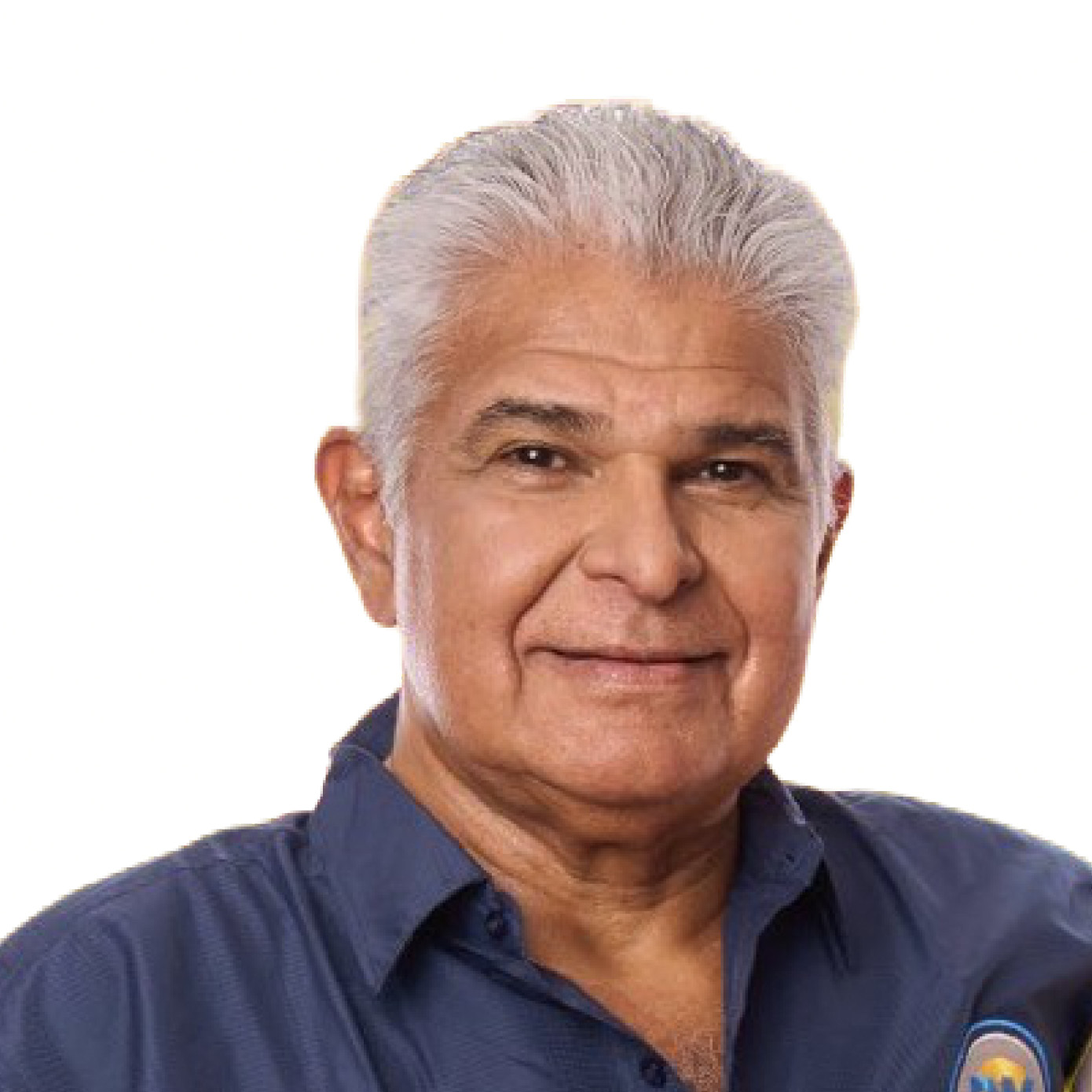
José Raúl Mulino
64, former minister
Realizando Metas (RM) y Alianza
“We’re going to win the presidency and Ricardo Martinelli will be with me from day one.”
HOW HE GOT HERE
Mulino was former President Ricardo Martinelli’s running mate until the courts disqualified Martinelli due to a money laundering conviction and an impending 10-year prison sentence. Mulino is now running in Martinelli’s place. Mulino is a lawyer who first served in government as foreign minister (1993-94). He was later Martinelli’s Justice Minister (2009-10) and then Public Security Minister (2010-14). Martinelli initially chose his wife Marta Linares as his running mate, but she withdrew due to public outcry. Martinelli then chose Mulino, a trusted ally.
WHY HE MIGHT WIN
Martinelli was the clear front-runner before he was disqualified, polling well ahead of all other candidates. His administration is remembered largely for economic growth and poverty reduction, which resonates with voters facing high inflation and unemployment rates. Martinelli fully supports Mulino’s candidacy, and Mulino will lean on Martinelli’s broad appeal, mirroring his stances and proposals.
WHY HE MIGHT LOSE
Mulino is an unproven campaigner and lacks a support base of his own. Though he has Martinelli’s support, he is not as popular and is not as engaging a speaker. He is also associated with several contentious episodes of Martinelli’s presidency. He led a controversial crackdown on street crime and, in 2010, ordered police to break up large protests by force, resulting in two deaths and scores of injuries. He also signed a major military contract that was beset by allegations of corruption and ultimately canceled. He was jailed for six months in connection with the contract, but the charges were ultimately dropped.
WHO SUPPORTS HIM
Most Martinelli’s supporters—many of whom benefited from his presidency’s poverty reduction, job creation, and infrastructure expansion—appear willing to back Mulino. The public is frustrated by deficient services and perceived corruption at all levels of government. Many voters see Martinelli and Mulino as capable of disrupting an unpopular status quo while also boosting growth and maintaining order.
WHAT HE WOULD DO
Like other candidates, Mulino has said he would focus on employment, crime and access to potable water. He seeks to improve infrastructure and public transport. He has promised to expand Panama City’s metro system, a popular project of Martinelli’s presidency, to the nearby city of La Chorrera, and revamp maintenance of the country’s highways.
IDEOLOGY
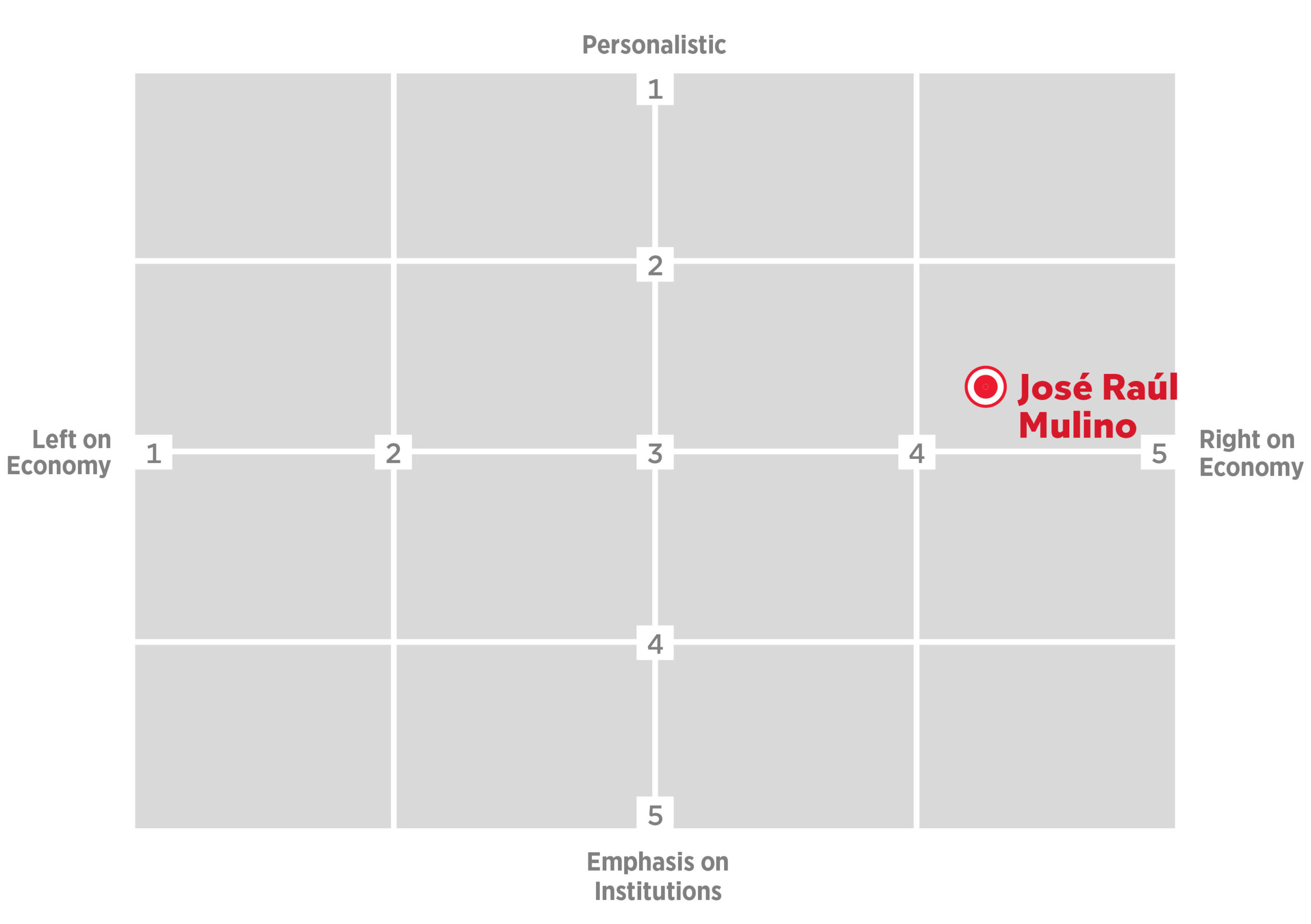
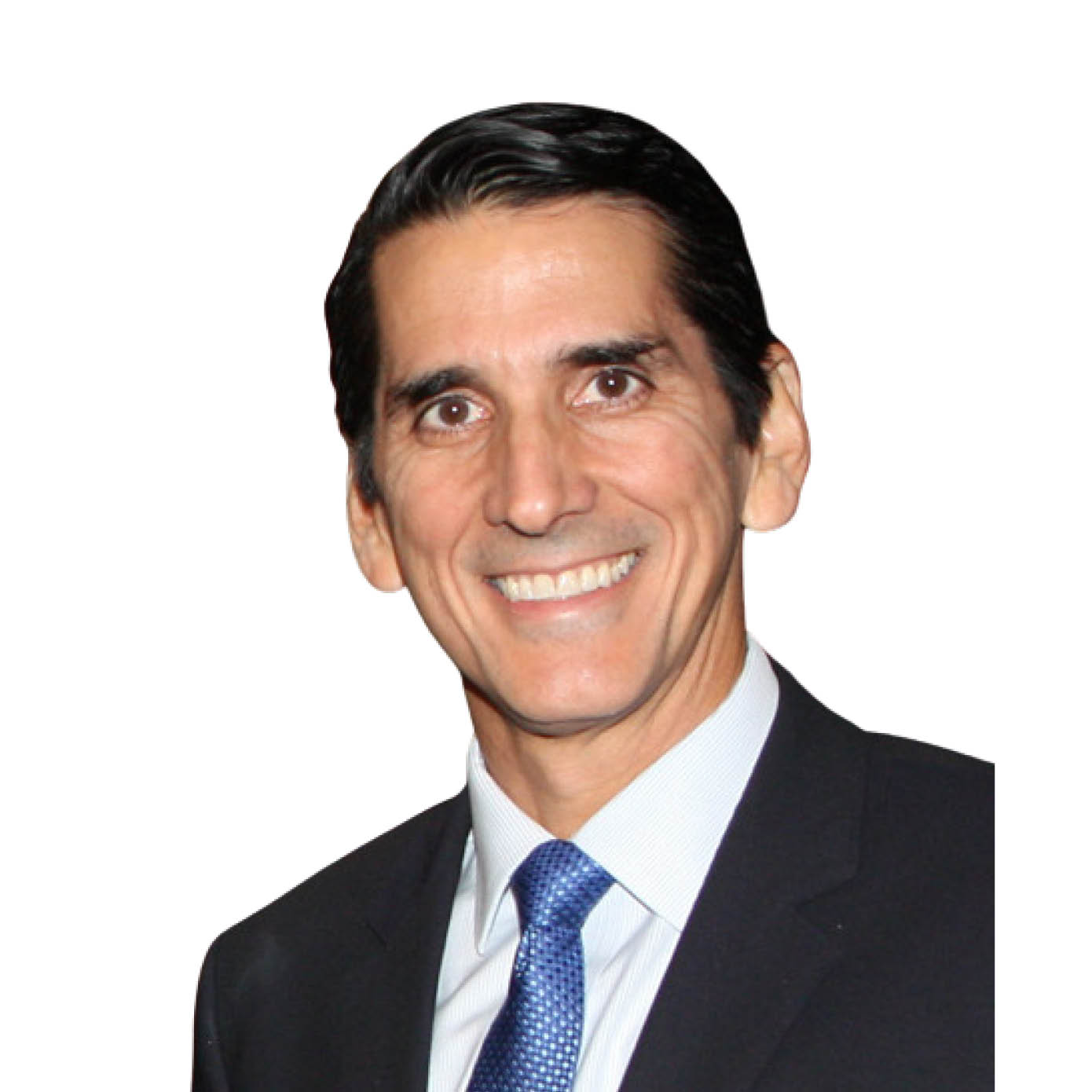
Rómulo Roux
59, lawyer
Cambio Democrático (CD)
“This government has had the money … it just hasn’t had the will.”
HOW HE GOT HERE
Roux is an experienced lawyer and consultant. He was president of the board that oversees the canal and was later canal minister (2009-12) under President Martinelli. He then briefly served as Martinelli’s foreign minister until he resigned in 2013 to seek the center-right CD party’s presidential nomination. He lost and became the CD party president.
WHY HE MIGHT WIN
Roux secured the CD nomination and ran for president in 2019, losing to Cortizo by just a narrow margin—less than 3%. He is a proven campaigner and is viewed as a competent administrator.
WHY HE MIGHT LOSE
Roux performed well in the 2019 election, but he did not have to run against Martinelli. Many of those who supported Roux in 2019 may now support José Raúl Mulino, who is running in Martinelli’s place with his support. Moreover, Roux has worked for over 30 years at Morgan & Morgan, a high-powered law firm implicated in the Panama Papers scandal that also represented the mine at the center of last year’s protests.
WHO SUPPORTS HIM
Roux has the support of much of the CD party, which has one of the country’s top national campaign machines and has been popular since its founding in 1998. He is popular among fiscal conservatives and the country’s medium to large business sector.
WHAT HE WOULD DO
He would be especially aggressive in reforming social security to shore up its finances. He would likely cut taxes and spending as he promised as a candidate in 2019, and also slash red tape. He has said he would cut the National Assembly’s budget to subsidize medicines and crack down on roadblocks as a form of protest, which he has repeatedly condemned.
IDEOLOGY
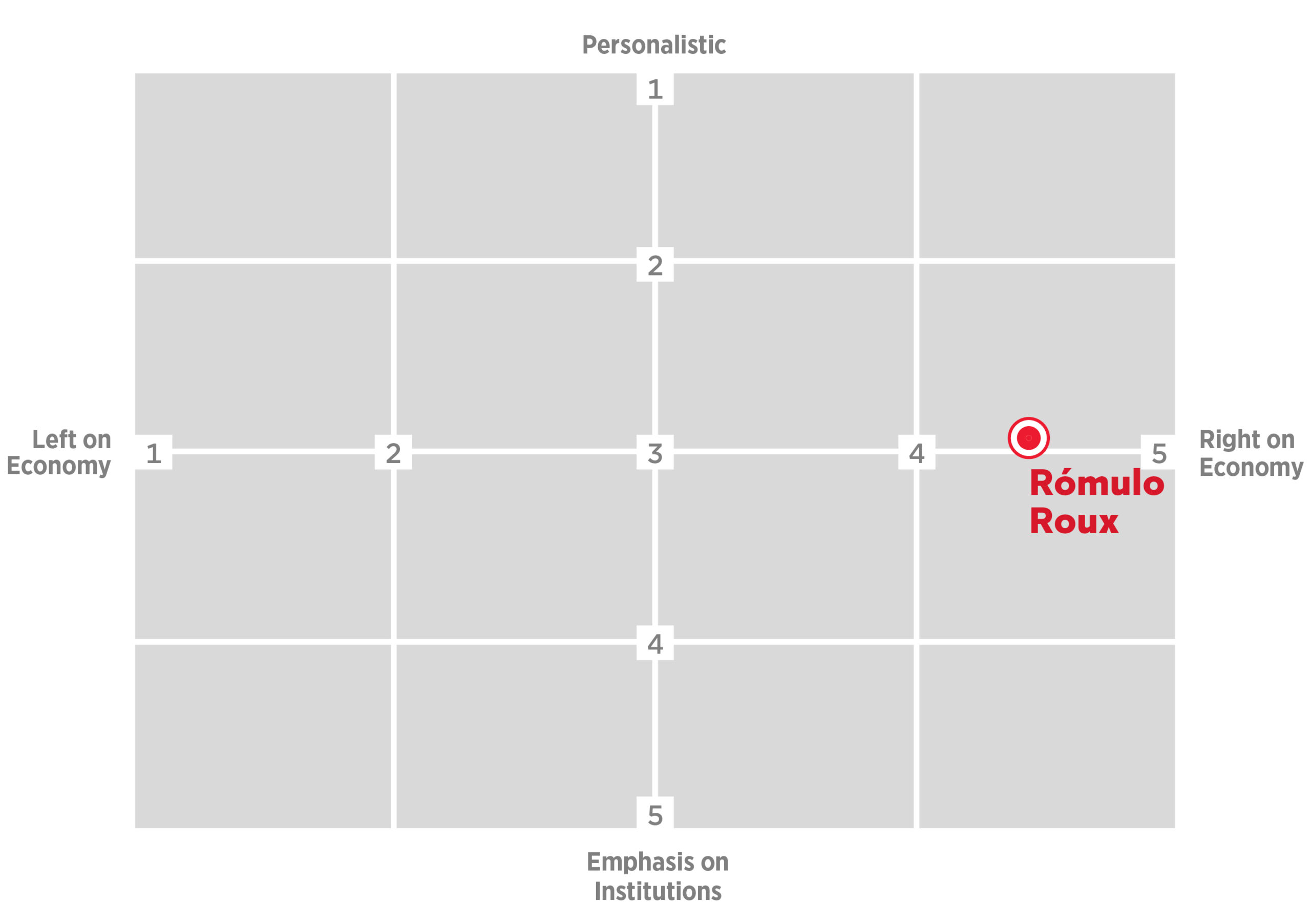
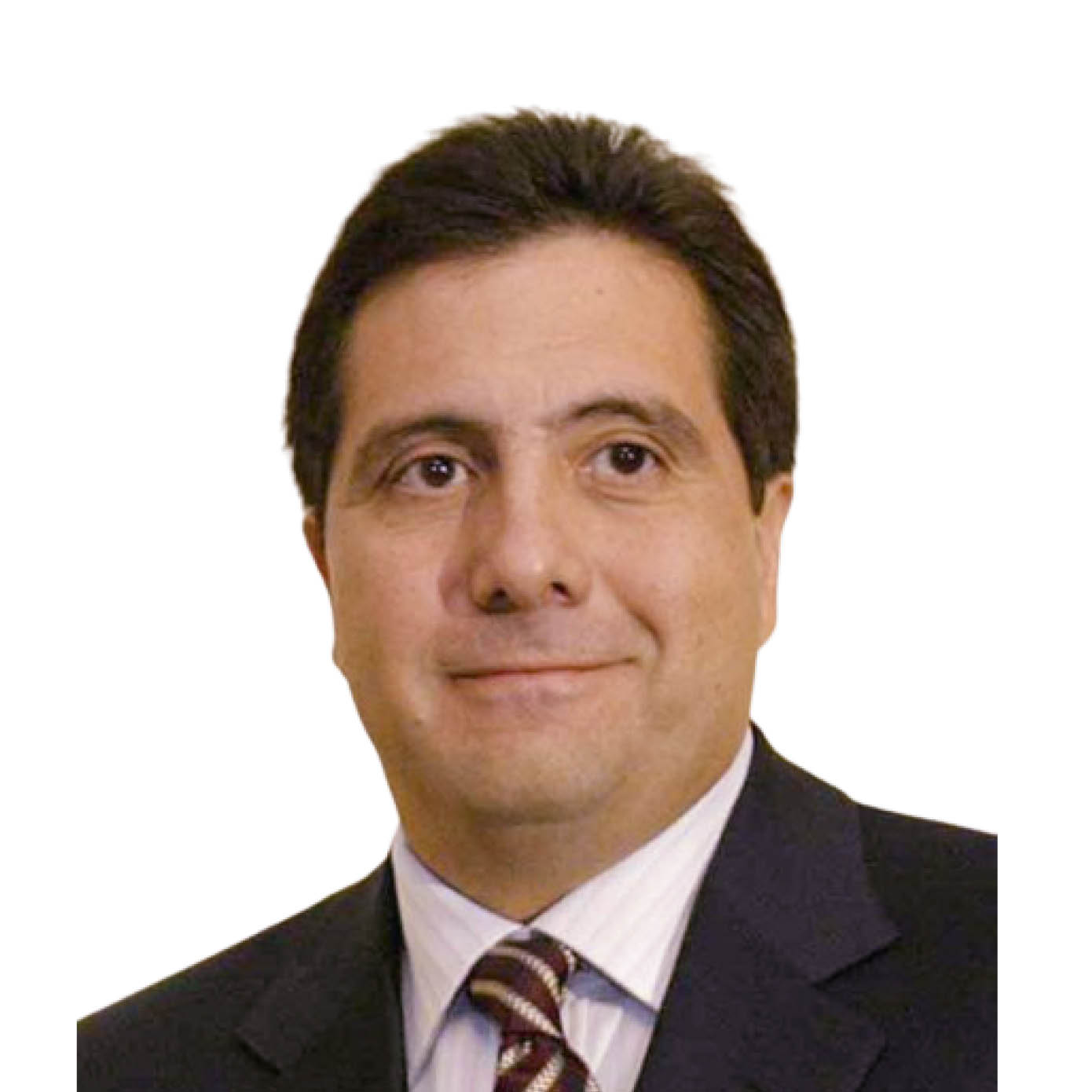
Martín Torrijos
60, former president
Partido Popular (PP)
“We set an example of responsibility for how to manage public finances.”
HOW HE GOT HERE
Torrijos was president from 2004-09. He is the son of General Omar Torrijos, who led Panama’s military dictatorship from 1968 until his death in 1981. He worked in business before starting in Panama’s politics in 1992 as a youth leader in the Partido Revolucionario Democrático (PRD) party, founded by his father. He rose quickly within the party, serving as vice interior minister from 1994-99 before winning the presidency.
WHY HE MIGHT WIN
As president, Torrijos began a popular expansion of the Panama Canal, approved through a referendum, and invested in effective anti-poverty programs. He also reformed social security to keep it solvent—a significant task ahead for the next administration.
WHY HE MIGHT LOSE
The PRD is deeply unpopular, and Torrijos is still closely associated with it, even though he left the party as a dissident before the 2023 demonstrations. Moreover, as president, he was forced to walk back some of his reform proposals, including on social security, after they sparked sizable protests.
WHO SUPPORTS HIM
Torrijos is popular among older nationalistic and conservative-leaning voters who remember him for reducing poverty and expanding the canal. He may also be able to draw large numbers of disaffected PRD voters looking for a new party.
WHAT HE WOULD DO
He has said the government should cut salaries for members of Congress and reverse spending increases for local government bodies. He also calls for stricter enforcement of water management laws, new health centers and special development zones for small cities.
IDEOLOGY
